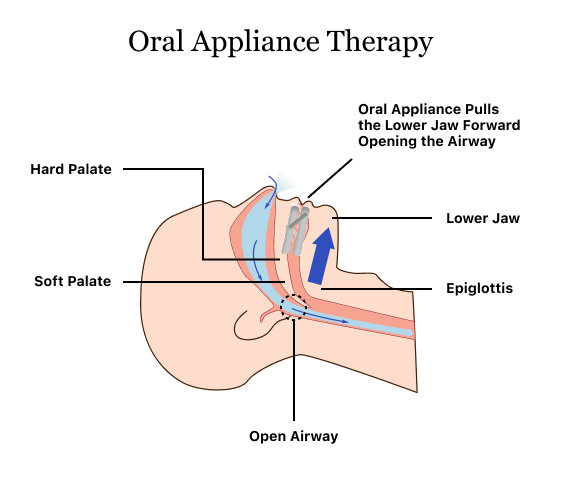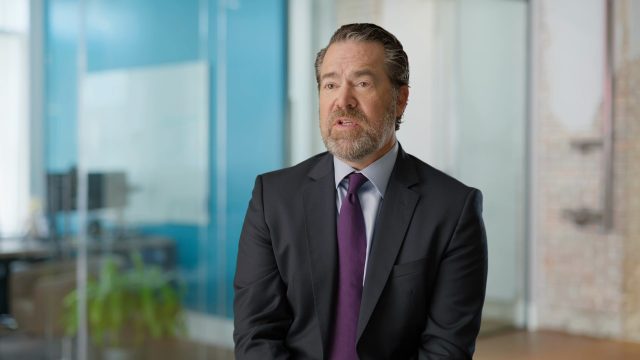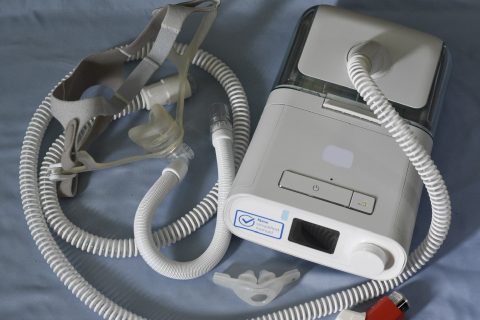Philips CPAP Alternatives
Effective CPAP machine alternatives are available. CPAP alternatives to treat sleep apnea include other PAP machines, such as EPAP or BiPAP devices, as well as nerve therapy, oral appliances and lifestyle changes. Emerging successful CPAP therapies include gene and pressure treatment therapies.
What CPAP Alternatives Are Available?
CPAP machines use continuous positive airway pressure through a constant stream of air to alleviate sleep apnea symptoms. Some alternatives to CPAP machines use different types of positive airway pressure treatment, such as bilevel positive airway and expiratory positive airway pressure devices.
Oral appliances such as tongue retaining or mandibular advancement devices can also be effective. Lifestyle changes, nerve therapy and surgery are other alternatives to CPAP machines.
- Alternative positive airway pressure machines: BiPAP, APAP and EPAP devices
- Emerging pressure treatment therapies
- Lifestyle changes
- Nerve therapy
- Oral appliances
- Surgery
Sleep apnea is a serious condition, and some people can’t stop CPAP treatment. However, CPAP alternatives are available. Speak with your doctor if you would like to begin using a CPAP alternative instead of a traditional CPAP machine.
Why Are People Seeking Alternatives to CPAP?
In June 2021, Philips recalled specific models of sleep apnea machines because sound abatement foam breakdown in the CPAP units could cause cancer, lung problems and other adverse side effects. Some people who developed cancer and serious respiratory issues using recalled CPAP machines are filing Philips CPAP lawsuits.
The U.S. Federal Drug Administration issued another Philips recall in October 2022 because of magnetic CPAP and BiPAP masks that could interfere with metallic implants, potentially causing severe injuries. In February 2023, Philips recalled some models of CPAP machines because of reprogramming errors in previously recalled and reworked machines.
According to a 2022 study of more than 2,500 CPAP injuries that occurred between 2014 and 2021, 4.62% of patients reported developing cancer after use, the second most commonly documented issue. As of March 2023, the FDA had received more than 104,000 medical device reports of side effects relating to PE-PUR foam.
Reported side effects include serious adverse effects such as asthma, breathing problems, cancer, chest pain, infection, nodules, pneumonia and respiratory problems. The FDA also received reports of 386 deaths related to the Philips CPAP recalls.
Alternative PAP Machines
CPAP machines provide a constant stream of air at the same pressure throughout the night, ensuring airways stay open. People with obstructive sleep apnea often use CPAP machines, but for some people who find the continuous air pressure uncomfortable, CPAP alternatives may be a better option.
Other types of PAP machines can provide relief for people with sleep apnea. BiPAP machines have different pressure settings for inhalation and exhalation, and EPAP machines adjust exhalation pressure to provide comfort. Auto-adjusting positive airway pressure machines automatically adjust to the user’s breathing patterns, making using the device feel more natural.
APAP Machines
APAP systems are similar to CPAP machines in that both deliver continuous air pressure and may be an effective solution among CPAP alternatives. Where the machines differ is in their responsiveness to patient breathing patterns. A user can set a CPAP machine to consistently deliver the same amount of air pressure, but an APAP machine automatically adjusts the amount of air pressure it delivers throughout the night.
CPAP and APAP machines both offer health benefits, but APAP machines can be more comfortable and offer a more customized experience as they continually adjust air pressure during sleep cycles. People can modify their APAP machines to account for breathing changes during a cold, allergy flare-up or other illness.
ASV Machines
Adaptive-servo ventilation machines are CPAP alternatives that measure patient breathing pressure throughout the night to create customized breathing support. ASV devices may benefit people who have central sleep apnea rather than obstructive sleep apnea. Patients with CSA do not take enough breaths per minute and may have long pauses without breathing.
Patients who typically respond well to treatment with an ASV device are those with systolic heart failure and ejection fraction, those who developed CSA after treatment for obstructive sleep apnea with a breathing device and those with CSA that occurs at high altitudes.
Speak to your doctor if you have sleep apnea and want to try an ASV machine as a CPAP alternative. People with certain types of heart failure may not be able to safely use an ASV machine, and a 2022 study shows the device may increase cardiovascular risk.
BiPAP Machines
BiPAP machines are one of the most popular alternatives to CPAP for sleep apnea. Like a Philips CPAP machine, a bilevel positive airway pressure machine helps people with sleep apnea or other breathing problems. A CPAP machine uses the same amount of air pressure when a person breathes in as when they breathe out, but a BiPAP machine uses higher pressure when a person breathes in and lower pressure when they breathe out. This difference in air pressure can make a BiPAP machine more comfortable.
BiPAP machines are helpful for people with sleep apnea, chronic obstructive pulmonary disorder, asthma and poor breathing after an operation. BiPAP may be a good option for people who don’t tolerate CPAP well. BiPAP might not be a good option for people with poor breathing, reduced consciousness or problems swallowing.
EPAP Machines
EPAP machines are a newer CPAP alternative that can effectively treat those with OSA. EPAP devices use a valve that attaches to the nostrils before sleep and creates pressure using only the air the sleeping person expels. This natural exhalation pressure makes airways more likely to stay open during inhalation, reducing periods of slow breathing. Unlike CPAP machines, EPAP machines don’t add pressure upon inhalation, making these alternatives more comfortable for some users.
A long-term study from the Division of Pulmonary, Critical Care and Sleep Medicine out of the University of Florida showed that using an EPAP machine significantly reduced the number of times people stopped breathing during the night and also reduced sleepiness during the day. A 2019 study found that both CPAP and EPAP treatment were equally effective and safe for most people with OSA.
Other CPAP Machines
Some people are looking for CPAP alternatives after Philips’s recall of their CPAP machine models, but many are looking for a different model or make of CPAP machine. Philips CPAP alternatives are available from different manufacturers, and Philips’s second generation DreamStation2 isn’t a part of the Philips CPAP recall.
- ResMed AirSense 10 CPAP
- Z2 Auto Travel CPAP Machine
- Philips Respironics DreamStation 2 Auto
- DeVilbiss IntelliPAP 2 Auto Adjust CPAP
- F&P SleepStyle Auto CPAP
When you’re looking for a new CPAP machine, ask your doctor for recommendations. The most effective CPAP machine for you depends on your individual needs.
Make sure to compare machine prices, noise levels and weight. Each machine may also have extra features such as an included humidifier, auto-adjust pressure, Bluetooth capabilities, better accessories and data tracking.
Emerging CPAP Machine Alternatives
A 2022 study suggests gene therapy may be an effective CPAP alternative to treat sleep apnea. Gene therapy controls nerve stimulation in the tongue to prevent it from blocking airflow during sleep. Treatment involves medication that blocks specific nerve channels in the carotid bodies in the neck that can impact breathing.
Gene therapy for sleep apnea also involves using medication to stimulate nerve pathways in the brain that control tongue muscles. The muscles in the tongue can be partly responsible for OSA if they are loose, but gene therapy and medication can prompt the brain to contract the muscles, reducing obstructed breathing during sleep. Gene therapy CPAP alternatives are non-invasive.
Lifestyle Changes
Lifestyle changes can be effective CPAP alternatives. Changing sleeping positions and using sleep apnea pillows, humidifying dry air and specific breathing practices can help reduce sleep apnea symptoms. Improvements in overall health, such as exercising more or quitting smoking, can also benefit sleep apnea symptoms.
- Avoiding alcohol and smoking
- Changing sleeping positions with sleep apnea pillows
- Maintaining a healthy diet and exercise routine
- Practicing breathing exercises, singing and yoga
- Trying nasal spray or decongestants to open airways
- Using humidifiers and air filters
Speak with your doctor if you’re considering any CPAP alternative. Your doctor may advise you to make lifestyle changes in addition to using your CPAP machine, especially if your symptoms are moderate or severe.
Nerve Stimulation
Hypoglossal nerve stimulation can be an effective alternative to CPAP therapy. Hypoglossal nerve stimulation requires a procedure to insert three components under the skin of the neck and chest.
During the procedure, a doctor inserts a sensor near the lungs to detect breathing patterns, a stimulator in the neck to trigger the nerves that control the tongue and a pacemaker near the collarbone to coordinate the stimulation with breathing. Patients can control the timing of the devices through a remote control, and they can set the device system to work only while asleep.
Hypoglossal nerve stimulation surgery is an outpatient surgery and has a short recovery period. Patients don’t usually require pain medication following the procedure. They can activate the device system four weeks post-procedure.
Oral Appliances
Oral appliances can be a cost-effective CPAP alternative. Oral appliances, such as a mouth guard, are removable devices that a person wears during sleep. These appliances support the jaw or the tongue to keep a person’s airway open.

Two types of oral appliances include mandibular repositioning devices to reposition the lower jaw and tongue-retaining devices to hold the tongue in place. Sleep specialists and dentists work together to help create custom appliances and fit the appliances to each patient. Oral appliances work better for people with less severe sleep apnea.
Surgery
If sleep apnea hasn’t responded to more conservative treatment or CPAP, a doctor may recommend surgery as an alternative to CPAP machines. Many of these surgeries are outpatient procedures.
- Mandibular/maxillary advancement surgery: Corrects throat obstructions or facial abnormalities that may contribute to obstructive sleep apnea. It’s a more invasive procedure that doctors usually only recommend for people with severe sleep apnea and face and head abnormalities.
- Nasal surgery: Corrects a deviated septum or other nasal obstructions. This surgery can sometimes help with breathing during sleep.
- Somnoplasty: Uses radiofrequency energy to reduce upper airway soft tissues, such as the uvula, soft palate or base of the tongue, to unblock the airway.
- Tonsillectomy: Removes obstructive tissue in the back of the throat that is a common cause of sleep apnea in children.
- Uvulopalatopharyngoplasty: UPPP removes soft tissue on the back of the palate and throat to widen the airway close to the throat opening, reducing breathing obstruction.
Your doctor will determine if there is a specific anatomical cause of your sleep apnea that requires surgery. Your doctor will also review your medical history for other medical conditions and physiological factors that will determine if you are eligible for surgery.
How to Choose a CPAP Alternative
The best alternative to a CPAP machine depends on your individual needs. Factors such as how severe your sleep apnea is, how well you tolerate CPAP therapy, the cost of treatment and your lifestyle are details that will help your doctor discuss CPAP alternatives with you.
When you talk to your medical provider, tell them about any CPAP side effects you’re experiencing. Discuss your sleep patterns and how willing you are to make lifestyle changes.
Sometimes finding the right CPAP alternative involves trial and error. Make sure to keep your medical provider up to date on how your sleep apnea treatment plan is working for you and any changes you make.
Calling this number connects you with a Drugwatch.com representative. We will direct you to one of our trusted legal partners for a free case review.
Drugwatch.com's trusted legal partners support the organization's mission to keep people safe from dangerous drugs and medical devices. For more information, visit our partners page.



